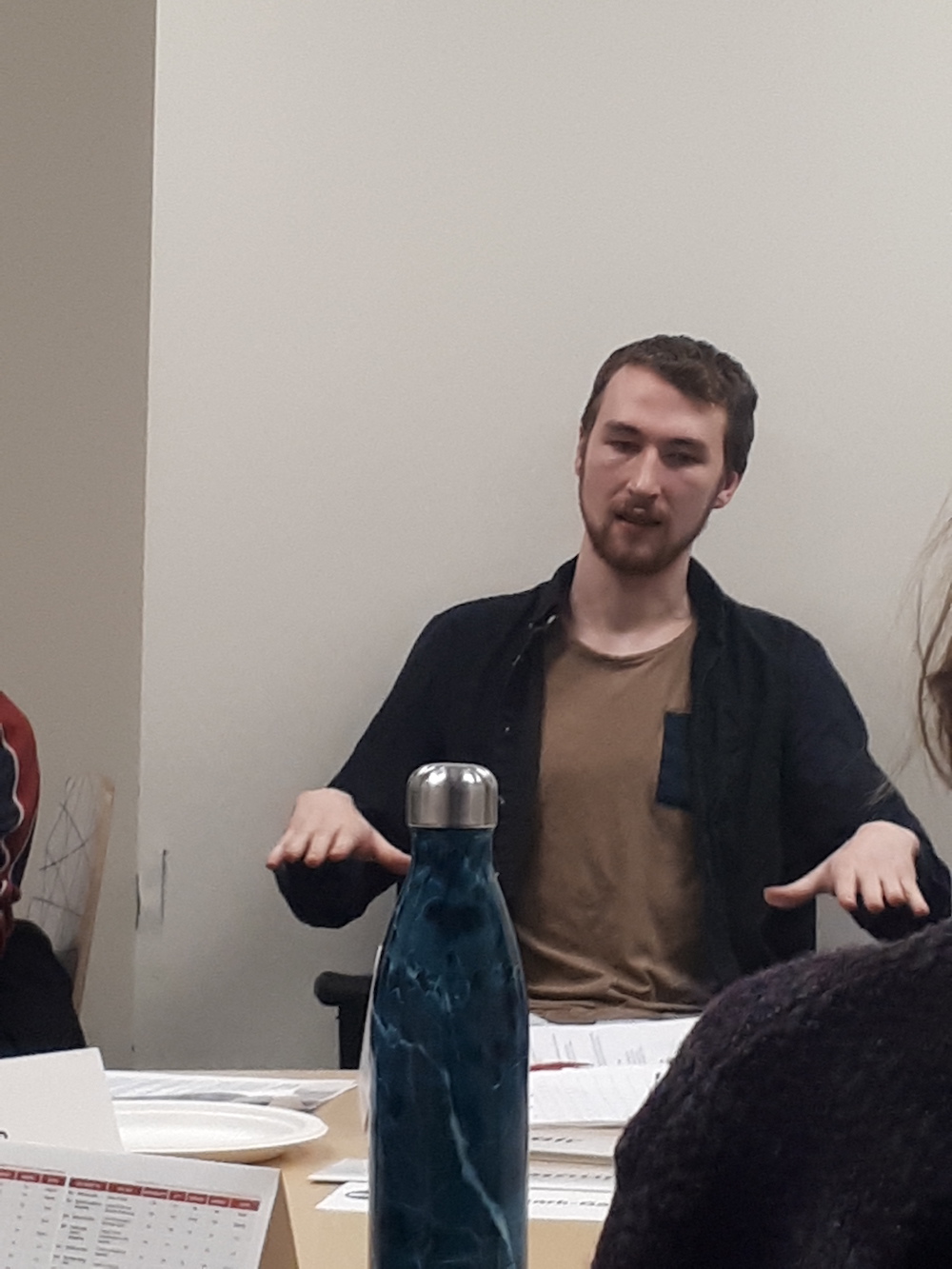Space Concordia president Mark Snidal argued his group should receive a fee-levy during a CSU special council meeting on March 5. Photo by Étienne Lajoie
Group seeks approval to ask students for $0,16 per credit fee-levy; complaint policy questioned
Space Concordia president Mark Snidal went to the March 5 Concordia Student Union (CSU) special council meeting hoping council would approve asking the student body if they would accept a $0.16 per credit fee-levy for his organization, effective Summer 2018.
“Over time, our scope has expanded […] more recently we’ve started including projects from students outside the scope of engineering,” said Snidal when asked why he believed Space Concordia should be receiving money from Concordia’s student body through a fee-levy.
In addition to their skepticism about Space Concordia’s benefit to the entire student body—and, therefore, whether it merited a fee-levy—the union called into question the functioning of the organization’s proposed complaint policy, which would be implemented along with a fee-levy.
Snidal explained that a permanent committee for dispute resolutions would be formed in order to address complaints made by members “arising out of or related to the Constitution, or out of any aspect of the operations of the Association,” the constitution reads.
The committee, Snidal suggested, would be chaired by a Space Concordia executive. It would also consist of a temporarily appointed member from Space Concordia, as well as a member of the CSU council and two students at large.
Certain council members pointed out that a conflict of interest may arise if the organization names its own chair, and council member Rowan Gaudet said he’d never seen the CSU appoint someone to sit on a complaints board for a fee-levy group.
“I think that’s not really our place […] that’s not something the CSU is responsible for, and also the CSU can’t promise it will go well,” Gaudet said.
“I think it’s really important that the complaint process is done in a way that the people coming forward feel comfortable and safe, and not necessarily that they are going to be outed by a committee right away when the committee is being chosen,” added Sophie Hough-Martin, a council member who sits on the student union’s policy committee. Hough-
Martin also recommended the group include consent and sensitivity training for its members.
According to CSU council member Aliénor Lougerstay—who also works as Space Concordia’s vice-president for marketing—the organization only recently received feedback from the union about their constitution, which includes the complaint policy, despite having submitted the proposed constitution to the CSU policy committee in December.
Lougerstay said the original proposal for the committee for dispute resolutions was that it be internal. However, the CSU policy committee noted that, since a person might file a complaint against the Space Concordia executive body, it couldn’t be internal.
“We tried to figure out something, so that’s how we came up with the idea [of having a CSU member on the committee.],” Lougerstay said.
In the end, the CSU council voted in favour of referring Space Concordia’s fee-levy request—including the complaint policy—back to the student union policy committee for review.
